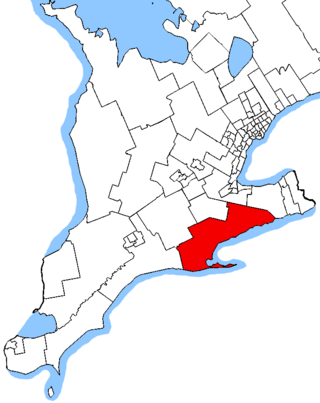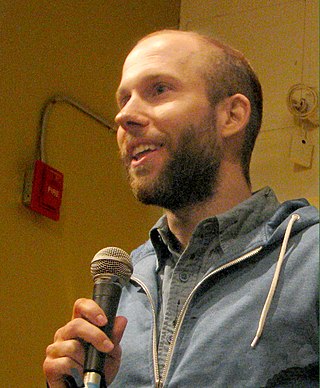Related Research Articles
The Green Party of Canada is a federal political party in Canada, founded in 1983 with a focus on green politics.

The Marijuana Party is a Canadian federal political party, whose agenda focuses on issues related to cannabis in Canada. Apart from this one issue, the party has no other official policies, meaning party candidates are free to express any views on all other political issues. Passage of the Cannabis Act in June 2018 legalized cannabis on 17 October 2018. However, the party is critical of some of the laws relating to cannabis since legalization and wants to see them changed or reformed. It also seeks to represent and advocate for the rights of cannabis consumers, growers, and small cannabis based businesses.
The Natural Law Party of Canada (NLPC) was the Canadian branch of the international Natural Law Party founded in 1992 by a group of educators, business leaders, and lawyers who practised Transcendental Meditation.

The Social Credit Party of Canada, colloquially known as the Socreds, was a populist political party in Canada that promoted social credit theories of monetary reform. It was the federal wing of the Canadian social credit movement.
The Libertarian Party of Canada is a federal political party in Canada founded in 1973. The party subscribes to libertarian and classical liberal tenets; its stated mission is to reduce the size, scope, and cost of government. Party policies include ending drug prohibition, ending government censorship, lowering taxes, protecting gun rights, ending laws criminalising the voluntary transfer of money for sex acts between consenting adults, and non-interventionism.
Historically in Quebec, Canada, there were a number of political parties that were part of the Canadian social credit movement. There were various parties at different times with different names at the provincial level, all broadly following the social credit philosophy; at various times they had varying degrees of affiliation with the Social Credit Party of Canada at the federal level.
The Parti crédit social uni was a provincial political party in the Canadian province of Quebec. It existed on two occasions, from 1969 to around 1971 and from 1979 to 1994. The party's leader in both periods was Jean-Paul Poulin. The PCSU was not formally aligned with the Social Credit Party of Canada.

The 1980 Canadian federal election was held on February 18, 1980, to elect members of the House of Commons of Canada of the 32nd Parliament of Canada. It was called when the minority Progressive Conservative government led by Prime Minister Joe Clark was defeated in the Commons.
The Union populaire was a federal political party in Canada that nominated candidates in the 1979 and 1980 federal elections. The party also nominated one candidate in the 4 May 1981 by-election in the riding of Levis, Quebec.

The 1979 Canadian federal election was held on May 22, 1979, to elect members of the House of Commons of Canada of the 31st Parliament of Canada. It resulted in the defeat of the Liberal Party of Canada after 16 years in power, 11 of them under Prime Minister Pierre Trudeau. Joe Clark led the Progressive Conservative Party to power but with only a minority of seats in the House of Commons. The Liberals, however, beat the Progressive Conservatives in the overall popular vote by more than 400,000 votes. Taking office on the eve of his 40th birthday, Clark became the youngest prime minister in Canadian history.

Cumberland—Colchester is a federal electoral district in Nova Scotia, Canada, that has been represented in the House of Commons of Canada since 2004.
The 1979 British Columbia general election was the 32nd general election in the Province of British Columbia, Canada. It was held to elect members of the Legislative Assembly of British Columbia. The election was called on April 3, 1979. The election was held on May 10, 1979, and the new legislature met for the first time on June 6, 1979.

Haldimand—Norfolk is a federal electoral district in Ontario, Canada, that has been represented in the House of Commons of Canada from 1979 to 1997, and since 2004. The current Member of Parliament (MP) is Conservative Leslyn Lewis.
The Communist Party of Canada - Marxist-Leninist ran several candidates in the 2004 federal election, none of whom were elected. Information about these candidates may be found on this page.
The Parti de la démocratie socialiste was a provincial political party in Quebec, Canada.

The Rhinoceros Party, officially the Parti Rhinocéros Party, is a Canadian federal political party. It originally existed from 1963 to 1993. It was refounded in Montreal on May 21, 2006, and was registered with Elections Canada on August 23, 2007. It was known as neorhino.ca until 2010 when the party changed its name and logo.

The 2015 Canadian federal election held on October 19, 2015, saw the Liberal Party, led by Justin Trudeau, win 184 seats, allowing it to form a majority government with Trudeau becoming the next prime minister.
Ruby Sahota is a Canadian Liberal politician who was elected as a Member of Parliament in the House of Commons of Canada to represent the federal riding Brampton North during the 2015 Canadian federal election.

The 2021 Canadian federal election was held on September 20, 2021, to elect members of the House of Commons to the 44th Canadian Parliament. The writs of election were issued by Governor General Mary Simon on August 15, 2021, when Prime Minister Justin Trudeau requested the dissolution of parliament for a snap election.

Michael Morrice is a Canadian politician serving as the member of Parliament (MP) for Kitchener Centre since 2021. A member of the Green Party, Morrice was elected to the House of Commons in the 2021 federal election, becoming the party's first MP elected in Ontario and the second elected outside of British Columbia.
References
- ↑ History of Federal Ridings since 1867: NICKEL BELT (1979/05/22), Parliament of Canada, accessed 22 May 2009.